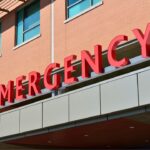Have you ever thought about what causes those awful stomach rumblings, also known as bubble guts? It’s not just a strange word, millions of people have this condition.
The noises your digestive system makes as it breaks down food are called bubble guts, borborygmi, or peristalsis in medicine.
Some noise is normal, but rumbling that goes on for a long time could mean there are problems deeper down.
People in the United States often have stomach bloating, also known as “bubble guts,” which makes them feel uncomfortable.
Some medicines can help, but some people choose to use natural remedies instead.
Come with me as I share below about what causes bubble guts and how to get rid of them.
Symptoms Of Bubbly Guts
While digesting food, the sounds from your abdomen temporarily occur due to gas and fluids indicating stomach upset or signs of starvation.
But, after having a meal, when experiencing pain leading to bubble guts is a red flag that can cause stomach infection and abdomen disorders like IBS and IBD.
Foods high in fiber, such as fruits and meat, are hard to digest and cause several health issues.
So, arranging your meal according to the digestive system can be a game changer, as it can prevent bubble guts and improve overall health.
Here are some of the symptoms of bubbly guts that you might experience:
- Bloating
- Flatulence
- Nausea and indigestion
- Abdominal pain
- Diarrhea or constipation
- Often burping
10 Causes of Bubble Guts
Some foods can irritate the stomach and abdomen, building up the gastric and guiding to painful sensations.
Your health depends on your digestive system, fatigue, and sugar cravings. Below, I have mentioned some of the main causes that can make bubbles in your gut.
1. Eating Without Chewing Correctly
Eating fast without chewing food appropriately can cause air swallowing, which makes your gut bubbly.
Although you need to work on your eating style, other habits matter as they are all related to digestion.
- Chewing gums
- Drinking through straw
- Carbohydrates drinks
2. Digestion Issues
An unbalanced diet slows digestion because fried food harms the body and damages digestion. When you suffer from bubble guts issues, always analyze the meal’s ingredients, as it helps you find the cause.
I recommend to balance your diet with low-fiber fruits and vegetables to prevent bubble guts and abdomen pain.
3. Intolerance or Allergies
According to Wikipedia, around 4 to 8 percent have food allergies and are intolerant to some ingredients. Many people avoid dairy or gluten products because they can cause pain or skin issues.
And, after having specific food, if you face stomach rumbling and bubbly guts, it could be a sign of allergy.
4. Surgeries
Mainly after surgeries, you are prescribed painkillers, a leading cause of gastric issues.
The chemicals and antibiotics help calm the pain, but it has side effects in your stomach and digestion, leading to bubble guts after surgeries.
5. Stomach Flu
Gastroenteritis, known as stomach flu, happens due to virus and bacteria buildup disturbing the digestion system. The intestine contracts, leading to bubble guts, vomiting, and diarrhea.
However, this condition can last around one to two weeks which can make you weak and dehydrated.
6. High-Fiber Diet
The soluble and insoluble help build good bacteria in your body, but increased soluble intake can cause gas or a bubbly gut. It creates a gel-like solution when mixed with water, resulting in slow digestion.
Switching your diet carefully from low-fiber to high-fiber can develop bubble guts; gradually extend fiber-based foods in your diet.
I have mentioned some of the best high-fiber foods for better digestion:
- Broccoli
- Sweet potato
- Chia seeds
- Beans
7. IBS Irritable Bowel Syndrome
Irritable bowel syndrome is a typical health condition causing bubble guts.
It all starts from abdominal pain, diarrhea, and constipation and might get worse if not treated immediately.
Doctors recommend changes to your diet and medications to prevent prolonged intestinal damage due to IBS.
8. IBD Inflammatory Bowel Disease
When food is absorbed poorly from small intestines, it enters the colon, where bacteria digest it, resulting in bubble guts.
It spreads through the intestines to the upper abdomen, causing unbearable pain, and diarrhoea, and you might suffer from bloody stool.
So, it’s better to consult a doctor or dietician to resolve this issue with medication and diet changes.
9. Unhealthy Habits
Cigarettes can affect your health in many ways, and one of the effects is on the respiratory system. Inhaling smoke enters the lungs, intestines, and stomach, irritating the digestive tract.
You must avoid smoking as a high amount of tobacco in cigarettes can worsen your IBS condition.
10. Anxiety And Depression
While going through an emotional rollercoaster, bubble guts appear from nowhere. However, experts suggest that stress eating can make you crave junk food, leading to bubble guts.
Also, anxiety triggers hormones and neurotransmitters, affecting guts and intestines bacteria, squeezing the stomach and pushing the waste, resulting in bloating and gas.
Must Read: Bubble Guts
Best 5 Treatments for Bubble Gut
There are numerous treatments to cure bubble gut problems, yet you must know what is the cause of this issue.
Mostly, it can be minor and resolved with massage or home remedies. However, consulting through a doctor is better if it’s severe.
Therefore, these are some of the best treatments to resolve bubble guts efficiently.
Herbal Remedies
This treatment shows incredible results in bubbly gut, bloating, and reducing gas but it’s not permanent.
You can try these at home based on herbal ingredients yet, I recommend you go for professional treatments, if you are suffering from stomach pain or IBS and IBD.
Some excellent herbal remedies that you can try:
- Ginger water
- Apple cider vinegar
- Peppermint and chamomile tea
Exercises
Digestion problems might extend due to a lack of physical movement, so exercising is a brilliant alternative. Daily, you can do exercises that help digest food and prevent bubble guts.
Or you can simply walk for half an hour to dilute the stomach acid, making food digest faster.
Stomach Massage
This is one of the best solutions for constipation relief from bubble guts and bloating within minutes. The trapped waste in the colon makes your abdomen cramping, pressure, and tightness, but massaging can work wonders.
Put your hands on your stomach and massage clockwise and anticlockwise as it helps stimulate the stomach, releasing gas.
Diet Changes
Some food items can begin reacting in your digestive system, so you must eliminate gas pains, stomach pain, and diarrhoea. High-in FODMAP foods should be excluded from your diet meals because they contain short-chain carbohydrates leading to Bubble guts.
Probiotics Intake
Taking probiotics has multiple benefits for your health, including better digestion and relief from bubbly gut problems. These supplements contain microorganisms to boost good bacteria and create a barrier for harmful bacteria to resolve healthy digestion and immune system issues.
You must include some probiotic foods in meals to avoid gastric, diarrhoea, and other stomach-related problems.
- Kefir
- Kimchi
- Pickles
- Raw cheese
Wrap up
So there you have it. As I mentioned above, many things can cause bubble guts such as too much gas and stomach rumbling, such as bad eating habits, gastrointestinal problems, infections, and food intolerances.
Sometimes feeling noises in the abdomen is normal, but if the symptoms last for a long time, you should not ignore them.
However, there are both medical and natural treatments that can help, such as herbal teas, antibiotics, and changes to your diet.
If bubble guts don’t go away, it’s important to see a doctor to get a correct diagnosis and personalized treatment.





